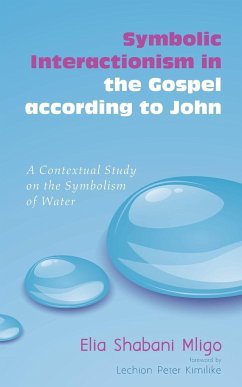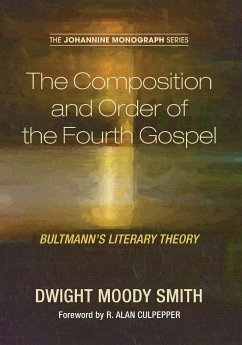
Symbolic Interactionism in the Gospel according to John

PAYBACK Punkte
8 °P sammeln!
Symbolic interactionism is a social-scientific perspective that seeks to describe how human beings create meaning with one another in their daily lives. Since the world is populated by symbols that characterize all interactions among living beings, this book explores the importance of symbols and symbolic interaction while moving beyond the social sciences to theological studies. By examining the way symbolic interaction is portrayed among characters in the Gospel according to John in the "water narratives," this book argues that the Bible is a symbol that is itself full of symbols whose meani...
Symbolic interactionism is a social-scientific perspective that seeks to describe how human beings create meaning with one another in their daily lives. Since the world is populated by symbols that characterize all interactions among living beings, this book explores the importance of symbols and symbolic interaction while moving beyond the social sciences to theological studies. By examining the way symbolic interaction is portrayed among characters in the Gospel according to John in the "water narratives," this book argues that the Bible is a symbol that is itself full of symbols whose meanings are worthy of our study. Hence, the interaction of characters in the Gospel of John and the whole Bible, along with the symbols they use in their interactions, demonstrates that symbolism is directly linked to human life because symbols are major means of communication, and without symbols, human beings are in chaos.














